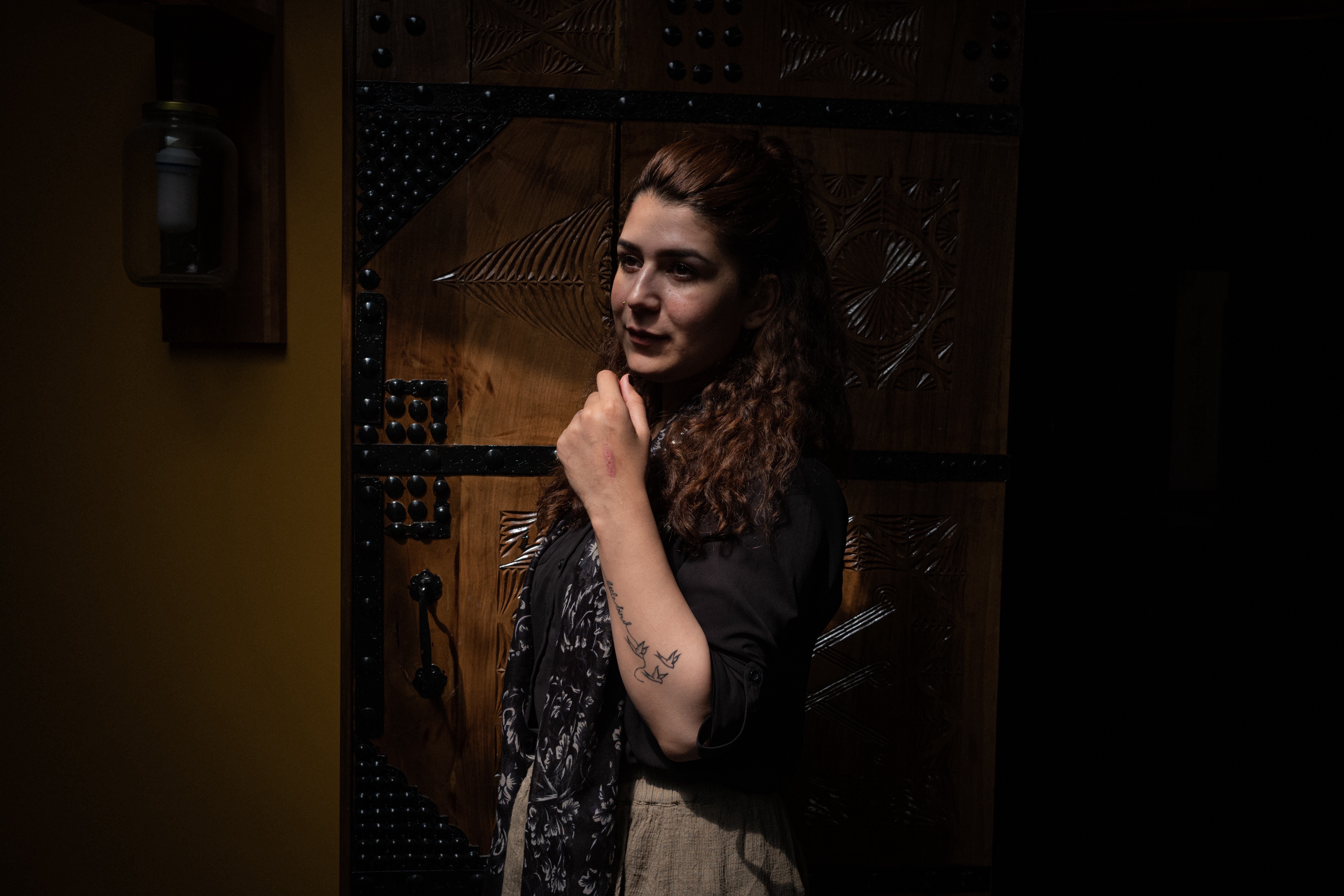It is a warm August weekend day in the Afghan capital of Kabul, but that doesn’t slow down Soraya Shahidi, a 26-year-old Afghan nail and tattoo artist. Dressed smartly in her ripped blue jeans and long yellow coat, her hair pulled back, and sporting a lip piercing, Shahidi stands out in the sea of modestly dressed Afghan men and women, some covered in traditional long, flowing blue burqas. Her unique ensemble is only a part of her extraordinary personality as the first female tattoo artist of Afghanistan.
At great personal risk, Shahidi offers her services in a safe, nonjudgmental space to Afghan men and women who are defying social norms to etch their skin with delicate art, sentimental symbols, lines from Persian poetry, or simply the names of loved ones. “I always wanted to be a beauty artist, and since there are no such [female] tattoo artists in Afghanistan, that motivated me to be the first one in this country,” Shahidi says in an interview with Zora in a tiny borrowed studio built in an annex above a men’s hair salon.
The temporary space — a niche in a wall that barely fits four people — was provided to Shahidi by her friend so she can work part-time on her expanding client base while she figures out a suitable location for her own studio and finishes her undergraduate studies. Shahidi, who is also a single mother, another rarity in Afghanistan, is mentally preparing herself for the backlash and opposition she expects to receive when she starts her own studio. Already, she faces harassment online for her work. “Some people reached out to me and told me what I am doing is haram [forbidden in Islam]. They also have a problem with a girl doing tattoos on boys,” she says.

Ina deeply conservative society such as Afghanistan, which suffered considerably during the four decades of war and the extremist Taliban regime, tattoos, especially on women, are considered un-Islamic and taboo. Shahidi and her clients, especially the women who get tattoos, are outliers in an Afghan society that is changing, albeit slowly. Many Afghan women are opting to get their bodies inked, not just for aesthetics but also as a form of silent rebellion and empowerment. According to Shahidi, designs that Afghan women choose for their tattoos are often small, delicate, and reflective of their struggles, as opposed to the men, who typically pick larger, masculine motifs that are perhaps testaments to decades of war and patriarchy.
The little birds traced across 24-year-old Enjila Ibrahimkhel’s left arm are symbolic of her dreams. “Like those little birds who fly high, I want to soar. I consider myself as a free bird and have big hopes and dreams,” says Ibrahimkhel, an artist and manager of a popular art-themed restaurant in Kabul. Like many Afghans, she has lived a life in refuge in other countries due to the war and conflict that ravaged her own. She studied to be a doctor in Pakistan, her adopted home, and returned to Kabul last year. However, Ibrahimkhel was drawn to the burgeoning art and social scene of the Afghan capital and decided to pursue her passion in the restaurant industry instead.
Read full story on ZORA
